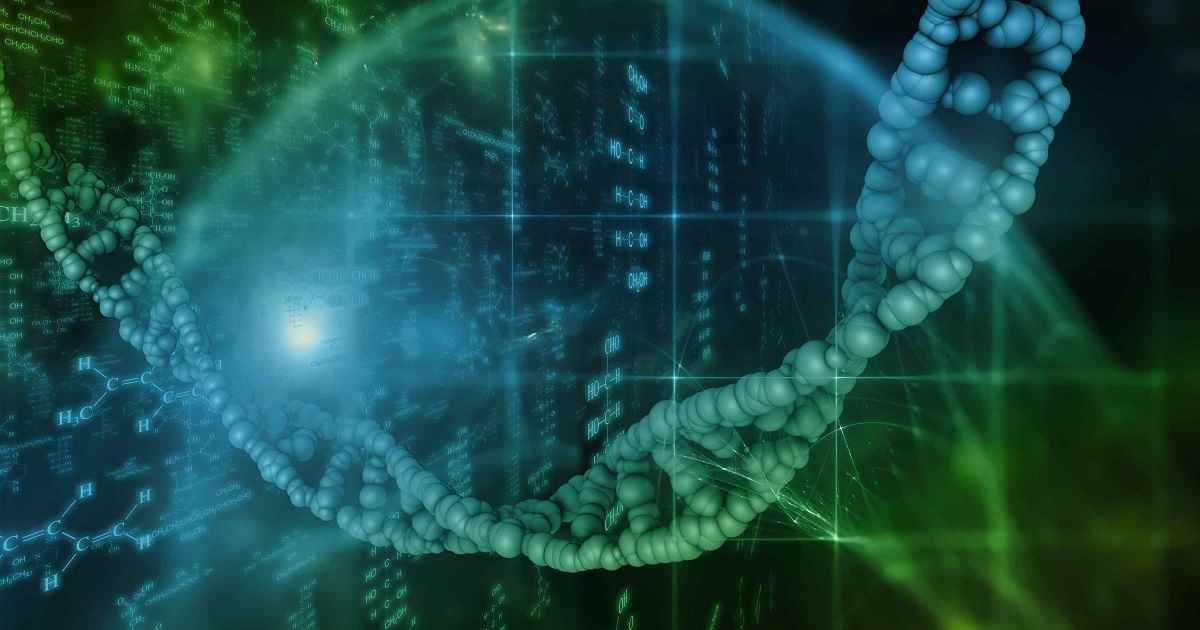
Medical
Twist Bioscience Corporation | January 30, 2024
Twist Bioscience Corporation a company enabling customers to succeed through its offering of high-quality synthetic DNA using its silicon platform, today announced the expansion of Twist Express Genes, a new leading gene synthesis service with an order to shipping turnaround starting at five business days1, to include larger DNA preparations up to 1 milligram.
The Express Genes offering, initially launched in November 2023, now extends to larger midiprep (10μg to 100 μg) and maxiprep (100μg to 1mg) DNA preparations. As with Twist standard speed Clonal Genes, all Twist Express Genes are NGS-verified as clonally perfect.
“Since the initial launch of our Express Genes service in November, we have received positive and enthusiastic feedback from existing customers on our consistent and rapid turnaround time. By expanding Express Genes to include midiprep and maxiprep, we can now offer rapid gene synthesis at all gene prep scales, enabling large scale experimentation for pharmaceutical, biotechnology, academic and industrial chemical researchers,” said Emily M. Leproust, Ph.D., CEO and co-founder of Twist Bioscience. “With the expanded offering of Twist Express Genes, more researchers can gain access to Twist genes fast and at scale, including those using alternative providers and those cloning their own genes. The ability to order and receive synthetic DNA fast and at scale means more time for cutting-edge research, more make-test-learn cycles, and an accelerated journey to game-changing discoveries.”
Twist leverages its ability to miniaturize the chemical reaction to create DNA using its silicon-based DNA synthesis platform along with expertise, software, optimized processes and the expanded layout of its Wilsonville facility to deliver Clonal Genes and Gene Fragments at scale and with rapid turnaround times. Twist’s Express Genes are offered with dynamic pricing, which reflects market demand and manufacturing capacity in a responsive premium price. Customers are able to quickly and easily place orders for Express Genes through Twist’s ecommerce platform.
Twist Express Genes
Twist Express Genes are 0.3kb to 5.0kb in length. Due to scale enabled by Twist’s platform, orders of any size both small and large can be filled, and as with standard speed Twist Clonal Genes, Twist Express Genes are NGS sequence-verified as one hundred percent accurate. Twist Express Genes can be cloned into catalog vectors or custom vectors so that customers can move right to experimentation. They can also be shipped in customers’ preferred delivery formats, including tubes and plates. For more information and product specifications click here.
Current turnaround times for some Twist Bioscience products
Express Genes1 (50ng-10µg): starting at 5 business days, now for up to 10µg
Standard Clonal Genes (50ng-10µg): starting at 10 business days
Express Genes1 (10µg-1mg): starting at 8 business days
Standard Clonal Genes (10µg-1mg): starting at 13 business days
1 Express Clonal Genes ship in 5-7 business days. DNA prep sizes including 10 μg - 100 μg, and 100 μg - 1 mg may incur an additional 3-5 days for synthesis. Orders placed outside of the US will incur additional delivery turnaround time. Express Genes orders that require new custom vector onboarding will incur an additional 1-2 weeks for processing.
About Twist Bioscience Corporation
Twist Bioscience is a leading and rapidly growing synthetic biology and genomics company that has developed a disruptive DNA synthesis platform to industrialize the engineering of biology. The core of the platform is a proprietary technology that pioneers a new method of manufacturing synthetic DNA by “writing” DNA on a silicon chip. Twist is leveraging its unique technology to manufacture a broad range of synthetic DNA-based products, including synthetic genes, tools for next-generation sequencing (NGS) preparation, and antibody libraries for drug discovery and development. Twist is also pursuing longer-term opportunities in digital data storage in DNA and biologics drug discovery. Twist makes products for use across many industries including healthcare, industrial chemicals, agriculture and academic research.
Read More

Medical
Heron Therapeutics, Inc. | January 29, 2024
Heron Therapeutics, Inc. a commercial-stage biotechnology company announced that the U.S. Food and Drug Administration (the "FDA") has approved its supplemental New Drug Application ("NDA") for ZYNRELEF® extended-release solution to expand the indication for soft tissue and orthopedic surgical procedures including foot and ankle, and other procedures in which direct exposure to articular cartilage is avoided. ZYNRELEF was previously approved for foot and ankle, small-to-medium open abdominal, and lower extremity total joint arthroplasty surgical procedures in adults.
This expanded indication for ZYNRELEF will now cover an estimated 13 million procedures annually, an estimated increase of 86% over prior indicated procedures. To obtain this labeling expansion, Heron successfully conducted studies for cesarean section, spinal surgery, augmentation mammoplasty, and total shoulder arthroplasty. No unique safety issues were identified from the new clinical trials, and the bupivacaine and meloxicam blood concentrations were consistent with previous experience following ZYNRELEF administration.
"The expanded indication is poised to have a transformative impact on patient care, providing healthcare professionals with a versatile and effective solution for managing postoperative pain across an even wider range of surgical procedures. The new label expansion and recent partnership with CrossLink, combined with the potential approval of the Vial Access Needle ("VAN") later this year, are expected to have a significant positive impact for ZYNRELEF and the Company," said Craig Collard, Chief Executive Officer of Heron.
"We're excited for the opportunity to give even more healthcare providers and patients a new, safe and effective option for achieving long-lasting non-opioid pain control after painful surgical procedures," said Bill Forbes, Executive Vice President, Chief Development Officer at Heron. "This new approval further reinforces our commitment to providing meaningful solutions to address unmet medical needs in the acute care and oncology settings."
ZYNRELEF is the first and only therapy for postoperative pain management to be rigorously tested in Phase 3 studies and demonstrate superiority to bupivacaine solution, the current standard-of-care. ZYNRELEF demonstrated superiority compared to bupivacaine with lower pain scores, fewer patients experiencing severe pain, and lower opioid consumption. ZYNRELEF was initially approved by the FDA in May 2021 and received approval of the first supplemental NDA for an expanded label in December 2021.
"Patients undergoing orthopedic procedures often experience severe pain, slowing down their recovery time and potentially leading to other complications. Reducing patients' pain within the first three days is critical for patient satisfaction, and having a product like ZYNRELEF now available for additional orthopedic procedures is a great benefit to have in my practice," said Alexander Sah, M.D., orthopedic surgeon at Sah Orthopaedic Associates. "ZYNRELEF helps my patients recover fully, be discharged sooner, and have significantly less pain, with little to no opioid use."
Important Safety Information for Patients
ZYNRELEF contains an NSAID (non-steroidal anti-inflammatory drug), a type of medicine which
Can increase the risk of a heart attack or stroke that can lead to death. This risk increases with higher doses and longer use of an NSAID.
Cannot be used during heart bypass surgery.
Can increase the risk of gastrointestinal bleeding, ulcers, and tears.
ZYNRELEF should also not be used
if you are allergic to any component of ZYNRELEF, similar local anesthetics, aspirin or other NSAIDs (such as ibuprofen or naproxen), or have had an asthma attack, hives, or other allergic reaction after taking any of these medicines.
as a paracervical block, during childbirth.
The most common side effects of ZYNRELEF are soft tissue procedures: vomiting and orthopedic procedures: constipation and headache.
The medicines in ZYNRELEF (a local anesthetic and an NSAID) may affect the nervous and cardiovascular system; may cause liver or kidney problems; may reduce the effects of some blood pressure medicines; should be avoided if you have severe heart failure; may cause adverse effects on cartilage; may cause a rare blood disorder, or life-threatening skin or allergic reactions; may harm your unborn baby if received at 20 weeks of pregnancy or later; and may cause low red blood cells (anemia).
Tell your healthcare provider about all your medical conditions and about all the medicines you take including prescription or over-the-counter medicines, vitamins, or herbal supplements to discuss if ZYNRELEF is right for you.
Talk to your healthcare provider for medical advice about side effects. Report side effects to Heron at 1-844-437-6611
The information provided here is not comprehensive. Please see full Prescribing Information, including Boxed Warning.
About ZYNRELEF
ZYNRELEF is the first and only dual-acting local anesthetic that delivers a fixed-dose combination of the local anesthetic bupivacaine and a low dose of nonsteroidal anti-inflammatory drug meloxicam. ZYNRELEF is the first and only extended-release local anesthetic to demonstrate in Phase 3 studies significantly reduced pain and significantly increased proportion of patients requiring no opioids through the first 72 hours following surgery compared to bupivacaine solution, the current standard-of-care local anesthetic for postoperative pain control. ZYNRELEF was initially approved by the U.S. Food and Drug Administration (the "FDA") in May 2021 for use in adults for soft tissue or periarticular instillation to produce postsurgical analgesia for up to 72 hours after bunionectomy, open inguinal herniorrhaphy and total knee arthroplasty. In December 2021, the FDA approved an expansion of ZYNRELEF's indication to include foot and ankle, small-to-medium open abdominal, and lower extremity total joint arthroplasty surgical procedures. On January 23, 2024, the FDA approved ZYNRELEF for soft tissue and orthopedic surgical procedures including foot and ankle, and other procedures in which direct exposure to articular cartilage is avoided. Safety and efficacy have not been established in highly vascular surgeries, such as intrathoracic, large multilevel spinal, and head and neck procedures. ZYNRELEF was granted a marketing authorization by the European Commission in September 2020 and by the United Kingdom Regulatory Authority in January 2021. In August 2023, we cancelled the ZYNRELEF U.K. marketing authorization and, in October 2023, we cancelled the ZYNRELEF European Union (EU) marketing authorization, as we do not plan to commercially launch ZYNRELEF in the U.K. or the EU.
About Heron Therapeutics, Inc.
Heron Therapeutics, Inc. is a commercial-stage biotechnology company focused on improving the lives of patients by developing and commercializing therapeutic innovations that improve medical care. Our advanced science, patented technologies, and innovative approach to drug discovery and development have allowed us to create and commercialize a portfolio of products that aim to advance the standard-of-care for acute care and oncology patients.
Read More

Medical
Jnana Therapeutics, Inc. | February 02, 2024
Jnana Therapeutics, a clinical-stage biotechnology company leveraging its next-generation chemoproteomics platform to discover medicines for challenging-to-drug targets, today announced positive, statistically significant interim results from its ongoing clinical study of JNT-517 in individuals with phenylketonuria (PKU). JNT-517, a small molecule inhibitor of the phenylalanine (Phe) transporter SLC6A19, is being evaluated as a potential first-in-class oral treatment for PKU across all ages and genotypes. On the basis of these positive interim results, Jnana has adapted the Phase 1b trial design to support the potential for accelerated progression of JNT-517.
“There is an urgent need for an oral, safe, and efficacious therapy for the more than 60% of individuals with PKU not currently on therapy. Across the spectrum of mild to severe disease, our results demonstrate a robust, sustained reduction in blood Phe levels, the registrational endpoint for PKU, giving us high confidence in the path forward for JNT-517,” said George Vratsanos, M.D., Chief Medical Officer and Head of R&D at Jnana Therapeutics. “We are also encouraged by this validation of the power of our RAPID platform to discover small molecules with compelling clinical benefit against challenging-to-drug targets.”
JNT-517 is being studied in a randomized, double-blind, placebo-controlled trial in individuals with mild to severe PKU. Following a 28-day screening period focused predominantly on ensuring an average blood Phe level of >600µM, study participants were randomized with no run-in period to 75mg of JNT-517 twice daily (BID) or placebo.
The planned interim analysis was based on 13 participants, eight dosed with JNT-517 and five dosed with placebo over 28 days, and demonstrated the following results
JNT-517 led to a statistically significant (p=0.0019 vs. placebo) mean blood Phe reduction from baseline of 51%, measured per-protocol at day 28.
A high response rate was seen where seven of eight (88%) treated participants achieved >30% reduction in blood Phe from baseline; five of eight (63%) achieved >45% reduction; and two of eight (25%) achieved >65% reduction.
A robust response was seen across participants treated with JNT-517 irrespective of baseline blood Phe levels, which ranged from 593µM to 1,526µM with a mean of 1,124µM.
A rapid onset of effect was observed with significant blood Phe reduction achieved within seven days after commencing dosing, which was sustained through the full 28 days of dosing.
JNT-517 was safe and well tolerated with no serious adverse events and no clinically significant changes in laboratory parameters, consistent with the safety profile demonstrated in the Phase 1a healthy volunteer study.
"JNT-517 represents a completely new therapeutic approach that could transform the current treatment paradigm in PKU, in particular for individuals with severe, or classical, PKU where there is the highest unmet medical need,” said Cary O. Harding, M.D., study investigator and Professor of Molecular and Medical Genetics at Oregon Health and Science University School of Medicine. “I am encouraged by the clinical results to date and look forward to working with Jnana and the PKU community to continue to advance this program.”
Based on these interim results, Jnana has adapted the protocol of the ongoing trial to include dose exploration. Jnana expects topline data from the second dose cohort in mid-2024 and plans to submit full data from the two dose cohorts for presentation at a scientific meeting in the second half of 2024. Jnana anticipates the company will engage regulators in the second half of 2024 and seek to advance JNT-517 directly into a pivotal Phase 3 study in the first half of 2025.
JNT-517 Phase 1b Clinical Trial
The ongoing clinical program includes a randomized, double-blind, placebo-controlled trial evaluating the safety, tolerability, pharmacokinetics, and effect on blood and urinary Phe of JNT-517 dosed over a four-week period in individuals diagnosed with PKU. The study dosed its first participant with PKU in August 2023 and is enrolling individuals aged 18 to 65 at clinical sites in the United States and Australia. For more information about the study, please see clinicaltrials.gov (NCT05781399).
About JNT-517
JNT-517 is a selective small molecule inhibitor of the Phe transporter SLC6A19 that has the potential to be a first-in-class oral therapy used to treat any person with PKU, regardless of age or genotype. JNT-517 acts at a novel, cryptic allosteric site to block kidney reabsorption of Phe and offers a promising new approach to reduce blood Phe levels. The U.S. Food and Drug Administration granted JNT-517 Rare Pediatric Disease Designation in late 2022.
About PKU
PKU is a rare inherited metabolic disorder caused by a deficiency of the enzyme phenylalanine hydroxylase (PAH). This enzyme is required for the breakdown of phenylalanine (Phe), an amino acid found in all protein-containing foods. When PAH is deficient or defective, Phe accumulates to abnormally high levels in the blood. If left untreated, toxic levels of Phe in the blood can result in progressive and severe neurological impairment and neuropsychological complications. The SLC transporter SLC6A19 is responsible for kidney reabsorption of Phe back into the bloodstream, and the inhibition of SLC6A19 offers a novel, oral approach for the treatment of PKU by facilitating urinary excretion of excess Phe.
About Jnana Therapeutics
Jnana Therapeutics is a clinical-stage biotechnology company leveraging its next-generation RAPID chemoproteomics platform to discover medicines for highly validated, challenging-to-drug targets to treat diseases with high unmet needs. Jnana is focused on developing first- and best-in-class therapies to treat a wide range of diseases, including rare diseases and immune-mediated diseases. Jnana’s wholly owned lead program, JNT-517, which targets an allosteric site on the phenylalanine transporter SLC6A19, is a potential first-in-class oral approach for the treatment of PKU, a rare genetic metabolic disease. Located in Boston, Jnana brings together scientific leaders in small molecule drug discovery and development, a highly experienced management team, and the backing of leading life science investors Bain Capital Life Sciences, RA Capital Management, Polaris Partners, Versant Ventures, Avalon Ventures, Pfizer Ventures, and AbbVie Ventures.
Read More